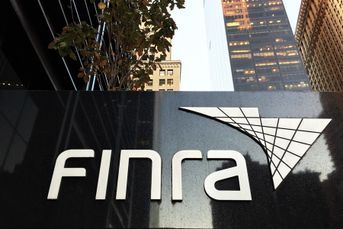Fat fees, conflicts made sales of GPB private placements ‘illegal’: investor complaint

GPB’s strategy was destined to fail, according to the lawsuit
Astronomical fees and undisclosed conflicts of interest undermined investors in GPB Capital private placements from the start, according to an amended prospective class action lawsuit filed last week in federal court in Austin, Texas.
Launched in 2013, GPB Capital marketed itself to investors seeking steady returns by investing in auto dealerships and trash hauling businesses. GPB raised $1.8 billion from investors, who bought the private placements through at least 60 broker-dealers that charged steep commissions on the sales.
GPB and its investors have endured a cascade of difficulties. The company has been under investigation by the SEC and FBI. In October, the Department of Justice charged GPB Capital’s chief compliance officer, who was also a former SEC examiner, with obstruction of justice relating to the SEC investigation of GPB.
The amended class action complaint, Kinnie Ma IRA v. Ascendant Capital takes aim at the unrevealed conflicts of interest of two owners of the GPB businesses, David Gentile and Jeffrey Schneider.
In addition to being an owner of GPB, Schneider was one of the owners of Ascendant Capital, the broker-dealer that contacted other brokers to sell the private placements. This conflict should have been revealed to investors, according to the complaint.
“Ascendant Capital, GPB’s primary distribution agent, and GPB itself, were both controlled by their principals, David Gentile and Jeffry Schneider,” according to the complaint. “However, neither GPB, nor Ascendant, nor their principals made disclosure of this co-ownership and common control to investors in the offering materials for the Securities.”
“The failure to disclose this gross conflict of interest — that the issuers of GPB securities and the purportedly independent agent selling these securities were commonly controlled — rendered the offerings of these securities illegal,” the complaint alleges.
The astronomical fees of 16% to 20% of investors’ money also harmed clients, who had been pitched yields of 8% and an internal rate of return for each GPB investment of 15%, according to the complaint. That means for each $1 million of gross investment, only approximately $800,000 of investor cash was actually available for investment, according to the complaint.
“GPB’s ‘investment strategy’ was destined to fail because it included exorbitant, unprecedented fees, which were not accurately described in its” sales documents, according to the complaint.
A spokesperson for GPB, Nancy Sterling, said in an email: “We have reviewed the suit and believe it has no merit. We will vigorously argue against it in court.”
Last summer, the company said that GPB Holdings II and GPB Automotive Portfolio had seen declines in value of 25.4% and 39%, respectively. The two funds raised $1.27 billion from investors and make up the lion’s share of GPB Capital’s portfolio.
[More: A crisis of confidence surrounds GPB Capital]
Learn more about reprints and licensing for this article.







